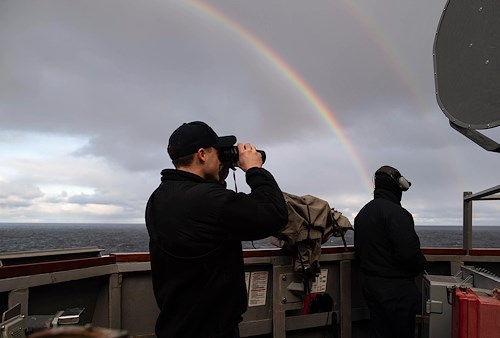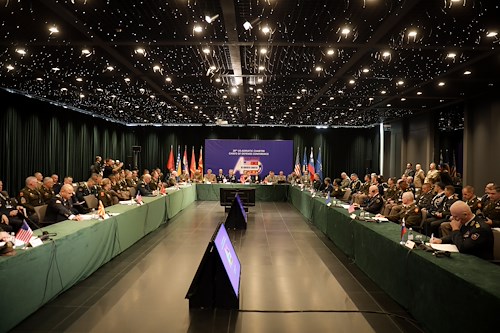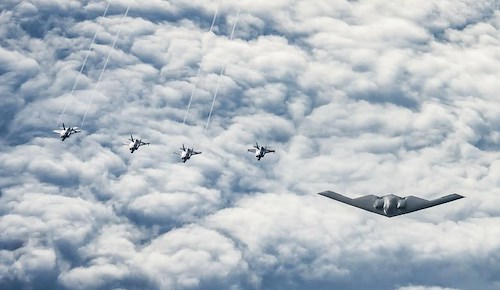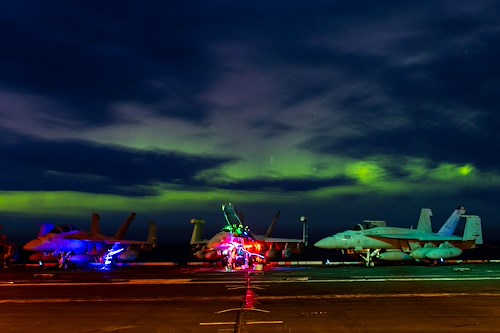Gallery contains 2 images
×
Photo 1 of 2
201128-N-TC847-1076
201128-N-TC847-1076 BALTIC SEA (Nov. 28, 2020) Ensign Tyler Bott assigned to the Arleigh Burke-class guided-missile destroyer USS Ross (DDG 71) observes a German Eurofighter F2000 aircraft, not pictured, during a NATO air defense exercise, Nov. 28, 2020.
Photo by: U.S. European Command Public Affairs
Photo 2 of 2
201128-N-TC847-1017
201128-N-TC847-1017 BALTIC SEA (Nov. 28, 2020) German Air Force Eurofighter F2000 aircraft conducts a flyover above the Arleigh Burke-class guided-missile destroyer USS Ross (DDG 71), not pictured, during a NATO air defense exercise, Nov. 28, 2020.
Photo by: U.S. European Command Public Affairs
The Arleigh Burke-class guided-missile destroyer USS Ross (DDG 71) completed a series of air defense and fighter control exercises with NATO air forces in the Baltic Sea, Nov. 28, 2020.
German Eurofighter F2000 aircraft from NATO Air Command conducted a series of flyovers while Ross’ air-intercept controllers directed the aircraft in a series of tactical air defense exercises.
“Air defense exercises like these provide us with a unique opportunity for our watch standers to train in a dynamic environment,” said Cmdr. John D. John, commanding officer of Ross. “Being able to conduct these exercises with our NATO Allies provides all of us with the opportunity to maintain our warfighting readiness and improve interoperability.”
Ross has conducted similar air defense exercises while operating in the Baltic, most recently being last week with Italian Eurofighter Typhoon F2000 aircraft assigned to NATO and again with Portuguese Air Force F-16 Fighting Falcons in September. These steady operations demonstrate a continued commitment to maritime security and common defense.
Ross, forward-deployed to Rota, Spain, began its 10th Forward-Deployed Naval Forces-Europe (FDNF-E) patrol Aug. 29 in the U.S. Sixth Fleet area of operations in support of U.S. national security interests in Europe and Africa.
Four U.S. Navy destroyers, including Ross, are based in Rota, Spain, and assigned to Commander, Task Force 65 in support of NATO’s Integrated Air Missile Defense architecture. These Forward-Deployed Naval Forces-Europe ships have the flexibility to operate throughout the waters of Europe and Africa, from the Cape of Good Hope to the Arctic Circle, demonstrating their mastery of the maritime domain.
U.S. Sixth Fleet, headquartered in Naples, Italy, conducts the full spectrum of joint and naval operations, often in concert with allied and interagency partners, in order to advance U.S. national security interests and stability in Europe and Africa.
This article was originally published on the U.S. Naval Forces Europe-Africa website.











